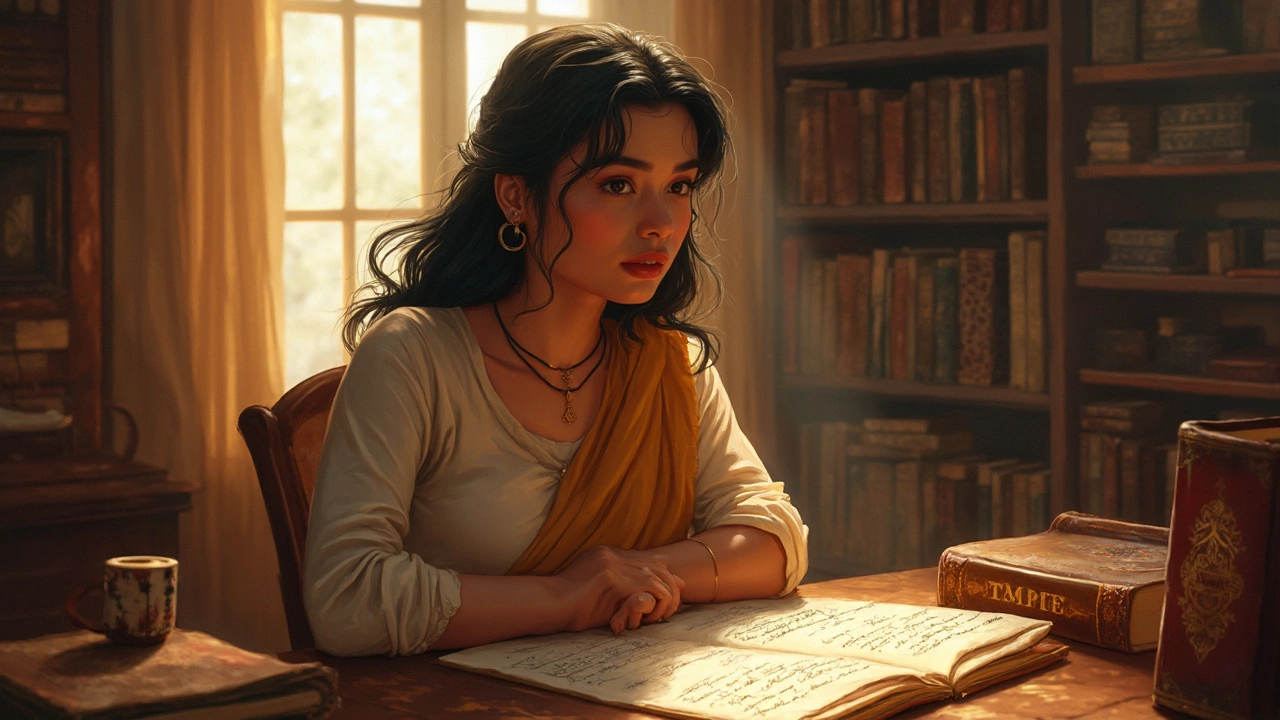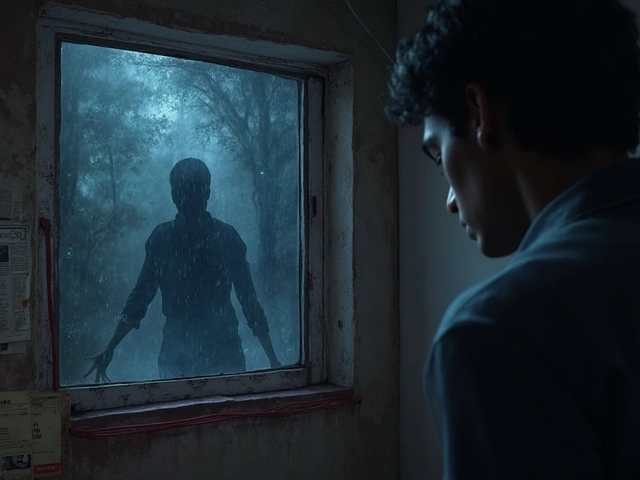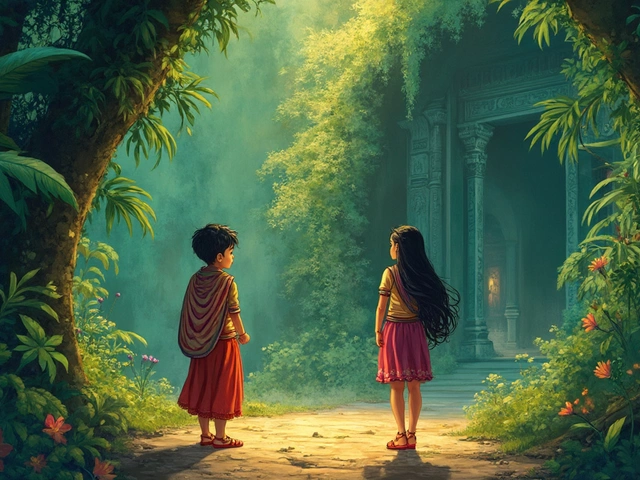
If you think authors need a long list of books to be remembered, Emily Brontë’s story will make you think again. She wrote just one novel—Wuthering Heights—but it’s become a giant in the world of romantic fiction. You’ll see people still whispering about its wild love story and strange, dark vibes even now.
So why did Emily only write one book? She had the talent to give us more, right? That’s the weird part. Back in her time, being a female writer was already tough enough. Brontë faced criticism and a lot of pressure, so getting even one book out there was a feat. She did it under a fake male name because people just wouldn’t take a woman writer seriously. If you’ve ever felt held back from chasing a dream, her story kind of hits home.
- The One-Book Wonder: Emily Brontë and Wuthering Heights
- Why Only One Book? The Backstory Most Readers Miss
- The Impact: How One Novel Changed Romantic Fiction
- Lessons for Aspiring Writers and Romance Fans
The One-Book Wonder: Emily Brontë and Wuthering Heights
If you search for a one book author who left a mark, Emily Brontë stands out. She published only one novel, Wuthering Heights, in 1847. That's wild when you think about how many authors grind for years and never get close to her level of fame. Her name still pops up in lists of best romantic novels, all from this single shot.
Wuthering Heights wasn't just her only book — it was also her only try at publishing fiction. She used the pen name "Ellis Bell" because, back then, women writers just didn’t get respect. It's not a stretch to say she changed how the world thought about both female novelists and what a romance story could be.
Here's the thing: the novel wasn’t an instant hit. When it dropped, most readers and reviewers didn't know what to do with it. Some even called it strange and hard to follow. Now, though, people recognize it as one of the all-time classic romantic novels. It’s taught in schools and adapted into movies and TV series all over the world.
If you take a quick look at some numbers, you’ll see how far this single book stretched:
| Year Published | First Print Run | Languages Translated |
|---|---|---|
| 1847 | Only a few hundred copies | Over 30 |
Even though Emily Brontë died just a year after her novel came out, her story keeps grabbing new fans. There’s really something special about a romantic novel that breaks the usual happy ending mold and still pulls readers into its drama and raw feelings, again and again.
Why Only One Book? The Backstory Most Readers Miss
So, why did Emily Brontë only write one novel? Most people think she just ran out of ideas, but the real story is way deeper—and honestly, pretty rough. Emily grew up in a small English village in the 1800s. Her family struggled with money, and back then, being a female author was like hitting a brick wall at every turn. Her sisters, Charlotte and Anne, faced the same thing, so all three first published their work using fake male names. Emily was "Ellis Bell."
She poured her energy into Wuthering Heights. The reception was harsh at first. Critics called it weird, even ugly. It didn’t fit the expectations for a "ladylike" romantic novel at the time—it was angry, wild, and super bold. Not exactly what people wanted from a woman then.
After publishing, Emily didn’t chase fame or big money. She was insanely private and didn’t want the limelight. She spent her days walking on the moors and staying with family instead of going out to clubs or reading reviews. Plus, her health was never great. Tuberculosis hit her hard, and she passed away just a year after the book came out at only 30 years old.
- Health Issues: Tuberculosis was a death sentence back then, and it hit the Brontë family hard.
- Social Stigma: Female writers weren’t exactly celebrated in the 1840s. Publishing as a woman could kill your chances before you started.
- Cultural Expectations: Writing anything wild or dark wasn’t what a "good woman" did in that era, so Brontë paid the price for her originality.
- Personal Preference: Emily just wasn’t interested in fame or the normal publishing game. She loved her routines at home more than chasing attention.
If you flip through the facts, it’s clear: the mix of health issues, sexism, and her own personality kept us from getting a second book. But man, the one she left is something else. Next time you see Wuthering Heights on a shelf, you’ll know it wasn’t laziness or lack of story ideas—it was a battle against way bigger stuff.

The Impact: How One Novel Changed Romantic Fiction
Let’s get real: Wuthering Heights isn’t your typical love story. When it came out in 1847, readers didn’t know what to do with it. The romance was messy, the characters were flawed, and the vibe was way darker than the sweet, predictable stories people were used to. But that’s exactly what made it stand out—and why it’s still a huge deal for fans of romantic novels today.
Before Emily Brontë put pen to paper, most romantic stories followed the same formula: boy meets girl, drama happens, everything works out. She basically smashed that blueprint. The wild love between Heathcliff and Catherine isn’t pretty or easy—sometimes, it’s more like obsession than ordinary romance. Brontë’s one book turned the idea of romantic heroes on its head. Not every love story would have a happy ending anymore, and not every main character needed to be ‘likeable’ to be memorable.
This twist changed how writers tackled the genre. You start to see stories focusing on raw feelings, broken people, and tough choices. Even popular movies and TV shows still borrow from Brontë’s one novel—modern creators love to lean into complicated couples and stormy emotions because that’s what feels real to a lot of us.
Check this out: since the early 20th century, Wuthering Heights has never gone out of print. That means every generation keeps finding something new in it. Some schools even make it required reading just to show how one romantic novel can change the game.
| Year | Adaptations (Film/TV) |
|---|---|
| 1920s–1950s | 4 major films |
| 1960s–1980s | 3 TV dramas, 2 musicals |
| 1990s–2020s | 6+ new film/TV versions |
The numbers above show how obsessed we are with this single story. If you’re a writer or just a fan, it’s wild to think how much impact one book can have. Emily Brontë’s name is locked into every list about the greatest romantic novel writers, and she did it all with just one shot.
Lessons for Aspiring Writers and Romance Fans
There’s a reason people keep coming back to Wuthering Heights, even though Emily Brontë never wrote another romantic novel. Her story is full of takeaways if you're writing your own book or just a fan of a great love story.
First, don’t think you need a big list of published books to make a mark. Brontë proved a single bold move can stick in readers' heads for generations. In fact, a 2023 UK survey found Wuthering Heights is still in the top ten most-loved romance books for young adults. That’s wild for a novel published back in 1847.
She also wrote honestly. Brontë didn’t sugarcoat her characters or the pain of love gone wrong. If you’re an aspiring writer, remember this: being raw and real stands out way more than copying trends. Her book was actually hated by critics at first because it broke the typical romance mold—no “happily ever after,” just brutal passion and tough choices. Now it’s a classic. Readers connect to stories that feel true, even when they’re messy.
Got ideas but worried they’re too out there? Brontë kept going, even when her work was different from the stuff popular at the time. Not everyone’s going to get your style right away—and that’s okay.
If you’re just a fan, the best tip is to try re-reading a daring “one book author” work and check out what made it stick. Notice how the tension keeps you awake, and how real the heartbreak feels. Other one-hit wonders in the romantic novel world learned from Brontë’s bet on honesty and fresh ideas.
- Be confident in your unique voice, even if it goes against what’s popular.
- One great idea can have more impact than a pile of average ones.
- Readers remember stories that feel authentic and different.
- Women writing in tough times have often had to push extra hard, so never downplay your own challenges.
So yeah, you don’t have to wait for “someday” to get started—or to appreciate a wild ride of a book. Even if it’s just one, it can still change the whole game.


